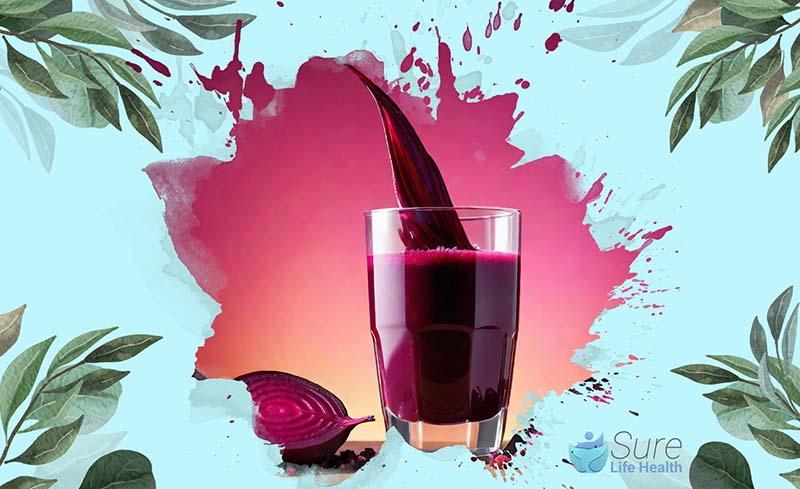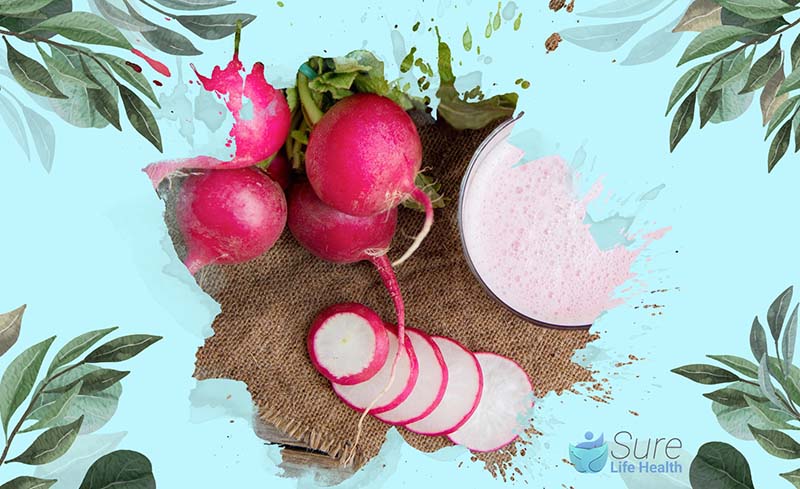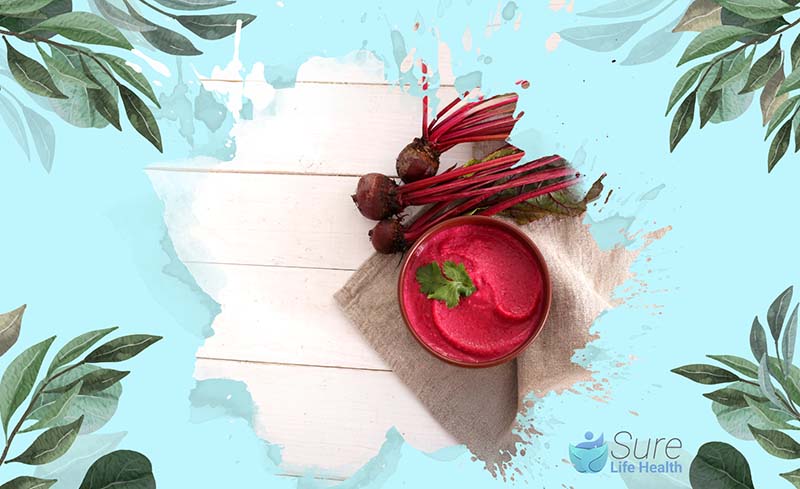Beetroot, rich in essential nutrients like vitamins A, C, and B, as well as minerals such as potassium, iron, and zinc, is a natural powerhouse for beauty treatments.
This guide explores the side effects of beetroot on hair, elucidating both its advantages and potential drawbacks in hair care routines.
Side effects of Beetroot on Hair
You might wonder about the potential side effects of using beetroot as a natural hair dye. To date, no significant adverse effects have been documented, affirming its safety for those seeking alternatives to harsh chemical hair dyes.
Nonetheless, consulting a dermatologist to ensure beetroot’s suitability for your scalp is recommended. Although rare, some individuals may experience allergic reactions to topical beetroot applications. If your scalp tolerates beetroot well, you can further explore its beneficial effects on hair health.
Note: Beyond its dyeing capabilities, beetroot is celebrated for enhancing hair health by boosting blood circulation to the scalp, thus promoting hair growth and increasing shine.

Beetroot Benefits for Hair
Beetroot has been a staple in diets for nearly 4,000 years, valued not only for its edible root but also for its leaves and stems. This versatile vegetable can be enjoyed raw in salads or cooked into soups and curries.
Beyond its culinary uses, beetroot is packed with nutrients and offers numerous health benefits, particularly for hair care.
Beetroot is rich in fiber, minerals, vitamins, and chlorine, yet it contains fewer carbohydrates compared to other starchy vegetables. This makes it particularly beneficial for hair health in various ways:
Protects the Scalp from UV Rays
Regular exposure to sunlight can damage both your hair and scalp due to harmful UV rays, which can degrade hair texture and health.
Applying beetroot juice or pulp as a topical treatment forms a protective barrier, mitigating this damage and maintaining the integrity of your hair.
Prevents Hair Loss
Hair loss can often be attributed to mineral deficiencies. Beetroot is laden with essential minerals like potassium, magnesium, iron, phosphorus, and electrolytes, all of which strengthen hair, reduce breakage, and nourish the hair follicles to bolster overall hair health.
Serves as a Natural Alternative to Hair Dye
For those seeking a chemical-free hair coloring solution, beetroot offers a splendid natural alternative.
Its deep red pigment can serve as a temporary hair dye, allowing customization in shade and tone without the harmful effects of conventional hair dyes.
Supports Dandruff Treatment
Dandruff can be more than just an annoyance; it can lead to severe itching and even hair loss. Beetroot combats dandruff effectively thanks to its enzyme content, which tackles the fungi responsible.
It also contains silica, which helps to hydrate the scalp, reducing dandruff and promoting follicle nourishment.
Promotes Scalp Blood Circulation
The high levels of nitrate in beetroot convert to nitric oxide, which dilates blood vessels and enhances blood flow to the scalp. This not only nourishes the hair follicles but also helps in toxin removal, creating a healthy environment for hair growth.
Scalp massages with beetroot juice or incorporating beetroot into your diet can boost circulation and hair health.
Makes Hair Shiny and Soft
Consistent use of beetroot on your hair can transform its appearance, imparting a natural shine and softness.
Whether applied as a juice or pulp, beetroot nourishes the hair, enhancing its texture and luster over time.
Delays Premature Graying
Rich in antioxidants like vitamin C, E, and carotene, beetroot helps delay the aging process, one of the contributing factors to premature graying.
Regular consumption of beetroot juice is a potent way to leverage these benefits, alongside incorporating it into your diet.
Nourishes Hair Follicles
Beetroot’s abundance of nutrients makes it an excellent choice for promoting healthy hair growth. The vitamins and minerals it contains are crucial for improving blood circulation to the scalp, ensuring that hair follicles are well-supplied with the necessary nutrients and oxygen for optimal growth.
Integrating beetroot into your hair care routine, whether through direct application or dietary inclusion, can significantly enhance hair health and vitality.
How to Use Beets for Effective Hair
Beet Juice for Enhancing Hair Growth and Luster
Incorporating beet juice into your diet can significantly improve hair vitality from within.
Beets contain an abundance of nutrients such as vitamin A, vitamin C, iron, magnesium, folate, and potassium, all of which are essential for nourishing hair follicles and enhancing growth. Additionally, the antioxidants present in beets lend a natural sheen to your hair.
Homemade Beet Hair Mask
Direct application of a beet hair mask can profoundly benefit the scalp and hair strands. Here’s how to prepare it:
- Extract juice from beets and blend it with an equal portion of coconut oil or olive oil.
- Gently work the mixture into your scalp and hair.
- Allow it to sit for 30 minutes to an hour before washing it off. The betalain antioxidants in beets combat the free radicals responsible for hair damage, while the oils provide deep conditioning.
Beet Rinse for Dandruff Management
Simmer beet chunks in water for 30 minutes to prepare a therapeutic rinse that can alleviate dandruff.
After cooling, apply this solution to your scalp following a shampoo wash. For optimal results, let it sit for a few hours or even overnight before rinsing. Beets’ anti-inflammatory attributes are excellent for minimizing flakiness and itchiness associated with dandruff.
Natural Beet Hair Dye
For those seeking a natural alternative to hair dyes, beet juice offers a temporary solution to dye hair a vibrant reddish tone.
Combine beet juice with a carrier oil and apply it to your hair, leaving it on for 1-2 hours before washing off. The betalains in beets are responsible for this natural coloring effect.

Who Should Not Use Beetroot Powder for?
Beetroot powder is not suitable for everyone, particularly pregnant women. The betaine found in beetroot may lead to complications during pregnancy.
Individuals with gallbladder issues or a predisposition to kidney stones should also steer clear of beetroot due to its high oxalate content, which can exacerbate stone formation. Moreover, if you have a history of gastrointestinal problems, beetroot can further irritate your condition and should be avoided.
Note: While beetroot offers numerous health benefits like increased stamina and lower blood pressure, it’s important to consider these potential risks and consult with a healthcare provider if you have any of the aforementioned conditions.

Conclusion
Despite being packed with antioxidants, essential vitamins, minerals, and fiber, beetroot remains underrated in skincare and haircare routines. Incorporating beetroot can transform your hair care regimen, serving as a natural hair dye and nourishing treatment.
As a safe, chemical-free alternative to commercial hair colorants, beetroot enhances both the color and health of your hair. Discover the comprehensive side effects of beetroot on hair and consider making it a key part of your beauty routine.
Now, we want to hear from you! Share your own experiences and stories with us in the comments below. And don’t forget to explore more insightful blogs on nail care and health from Sure Life Health. Keep nurturing those nails with vitamin E, and watch them flourish!
Professor Gaye Cunnane, PhD, MB, FRCPI
As the Director of Health and Wellbeing at RCPI, Professor Gaye Cunnane is at the helm of initiatives aimed at enhancing the health and well-being of RCPI Trainers and Trainees. Her role extends beyond administration; she is also a respected clinical professor of rheumatology and a consultant rheumatologist at Trinity College Dublin (TCD) and St James’s Hospital. Prof. Cunnane’s medical journey began at TCD, where she graduated from medical school, and her path has been marked by both clinical and academic excellence.
After completing her basic clinical training in medicine, she embarked on PhD studies at University College Dublin and St Vincent’s University Hospital. Her research during this period was focused on prognostic markers in early inflammatory arthritis, a project that saw her collaborating with esteemed universities across Europe, including in Switzerland, The Netherlands, the UK, and Sweden.
Prof. Cunnane’s career took her to the University of California, San Francisco, where she spent three years delving into research on new treatments for lupus. Her academic prowess led her to the University of Leeds in 2001 as a senior lecturer, before returning to Ireland in 2003 to assume her current roles. She has also served as the National Specialty Director for Rheumatology training in Ireland, Programme Director for Basic Specialist Training with RCPI, and as a past President of the Irish Society for Rheumatology.
PUBLISHED ARTICLES
“Rheumatic disease differentiation using immunoglobulin G sugar printing by high-density electrophoresis”: Published in The Journal of Rheumatology, this study reflects her in-depth investigation into rheumatic diseases.
“Benefits of exercise in patients with rheumatoid arthritis: a randomized controlled trial”: This research work, highlighting the positive impact of exercise on rheumatoid arthritis, underscores Prof. Cunnane’s dedication to practical, patient-centered research.
Additionally, Prof. Cunnane has made notable contributions to the Annals of the Rheumatic Diseases, discussing early referral, diagnosis, and treatment of rheumatoid arthritis. She has also been involved in a study on the NCBI platform investigating exercise benefits in rheumatoid arthritis patients.
Professor Gaye Cunnane’s career is a testament to her commitment to improving patient outcomes in rheumatology through rigorous research, clinical excellence, and dedicated teaching. Her work continues to influence the field of rheumatology, both in Ireland and internationally.

